A guide for medical students, other health care professionals and junior medics looking for advice on how to start a career in expedition medicine.
Outdoor Skills & Experience
Personal outdoor, expedition and travel experience is the most important thing for a career in expedition & wilderness medicine (more important than the medical skills). So whatever type of environment or expedition you’re interested in working in, I advise learning skills, and gaining experience and qualifications in this environment. You have to be in your comfort zone on the expedition in order to do the medicine. You will also be relied upon for leadership skills throughout the expedition. I started with the Mountain Leader (summer) training and assessment which offered a huge opportunity to consolidate and improve my mountain skills before evening going to medical school.
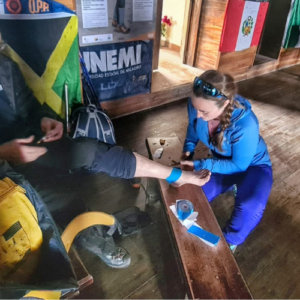
TOP TIP
To be an expedition medic, you first have to be a highly competent expedition member (preferably, a competent leader). If you’re at your limit just looking after yourself in the environment, you won’t be able to help others if things go wrong. The environment is the most important thing to master.
Here are a few ideas to get you started:
- Explore locally and further afield. Plan trips and lead groups. Make the most of student societies and clubs whilst you’re at university; they usually offer cheap trips and experiences.
- Outdoor courses & qualifications specific to the environment you want to work in: e.g. navigation courses, UK qualifications from the Mountain Training Association such as Mountain Leader (summer and winter mountain leader), RCI (rock climbing instructor). The Jonathon Conville Memorial Trust run subsidised Alpine mountaineering courses.
- Remember, not all experiences or courses need to come with a certificate or qualification. If you have specific learning goals, often hiring an instructor or guide for a day or several days to work on your skills is absolutely invaluable.
- Plan your own expeditions: grants are often available from universities, Royal Geographical Society, the Alpine Club, Awe Summit Scholarship Foundation and others. there are lists on the Adventure Medic website on their resources page.
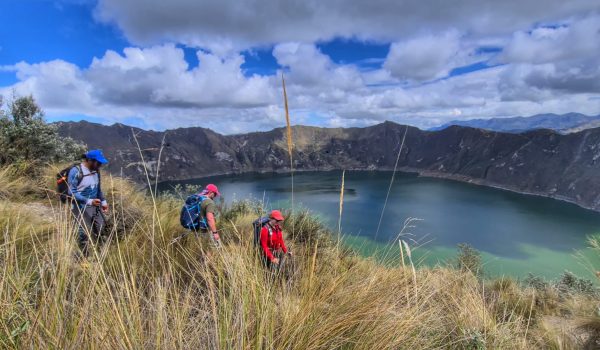
Expedition Medical Skills
Obviously, the medical skills are vital for expedition medical roles. This means being really great at the basics, being confident working alone and in teams, learning how to improvise, working with low resources and knowing your own competency limits. Crucially, it also means understanding the relevant medicine for your expedition environment.
Here are a some ideas of how to gain the appropriate medical knowledge and skills
Conferences
- If you can’t afford expensive conference tickets, consider volunteering to help as staff at the event for free entry. I did this when I was a student and it was a great experience.
- If you’re a student in the UK, try to attend a SWMUK (Student Wilderness Medicine Conference UK). These are a cheap way to learn loads, get inspired and make contacts. It was invaluable for me!
- World Extreme Medicine Conference (WEM) – always an incredible, international, varied, inspiring event.
- Pre-hospital and trauma conferences e.g. Royal College of Emergency Medicine, Trauma Care.
- BMRES (Birmingham Medical Research Expeditionary Society) runs an altitude research conference every couple of years in Birmingham.
Courses & Qualifications
There are loads of expedition medicine courses available. From a weekend introductory course to a year long diploma or masters. Choosing one depends on what you want to get out of it and how much time and money you want to spend. There are plenty of shorter courses that don’t give you a qualification but do give you an amazing taster and lots of skills.
- Consider volunteering as a casualty on a wilderness medicine course – this is a great way to learn, make contacts and certainly helped me when I was starting out.
- Expedition medicine courses e.g. with organisations such as World Extreme Medicine, Mountain and Expedition Emergency Medicine, Wilderness Medical Training, Endeavour Medical and Unique Expeditions. There are many other companies. Always check reviews. (Disclaimer: I work for WEM and highly recommend their courses.)
- Check out my self directed online courses which are a great way to learn in your own time: An Introduction To Humans At High Altitude and Women’s Health For Mountain Adventures. Email me at drhannahlock@gmail.com to get a student discount code for 50% off the normal price.
- BMMS (British Mountain Medicine Society) runs online events and study days which are free or low price generally.
- BMC (British Mountaineering Council) runs a mountain medicine weekend in conjunction with BMMS every May in the Peak District. It’s for lay people generally but medical professionals and students come too and it is a brilliant event. It is run by experienced mountain medics so it’s a great place to meet people too. https://www.thebmc.co.uk/mountain-medicine-weekend
- Consider post-grad qualifications e.g. DiMM (Diploma in Mountain Medicine), DiTMH (Diploma in Tropical Medicine & Hygiene), MSc (There are several Masters courses in various fields of Wilderness/Extreme medicine). Some of them accept final year medical students. I did the UK DiMM (now run by the University of Central Lancashire) during my F2 year. It gave me so much new knowledge, skills, confidence and I met loads of amazing people who have become good friends and mentors.
TOP TIP
Put yourself out there. Even if the person, course or organisation you’re interested in doesn’t have an opportunity currently advertised or available – send them your strongest CV and a cover letter asking if you can be involved. Despite many rejections, this has worked for me so many times!
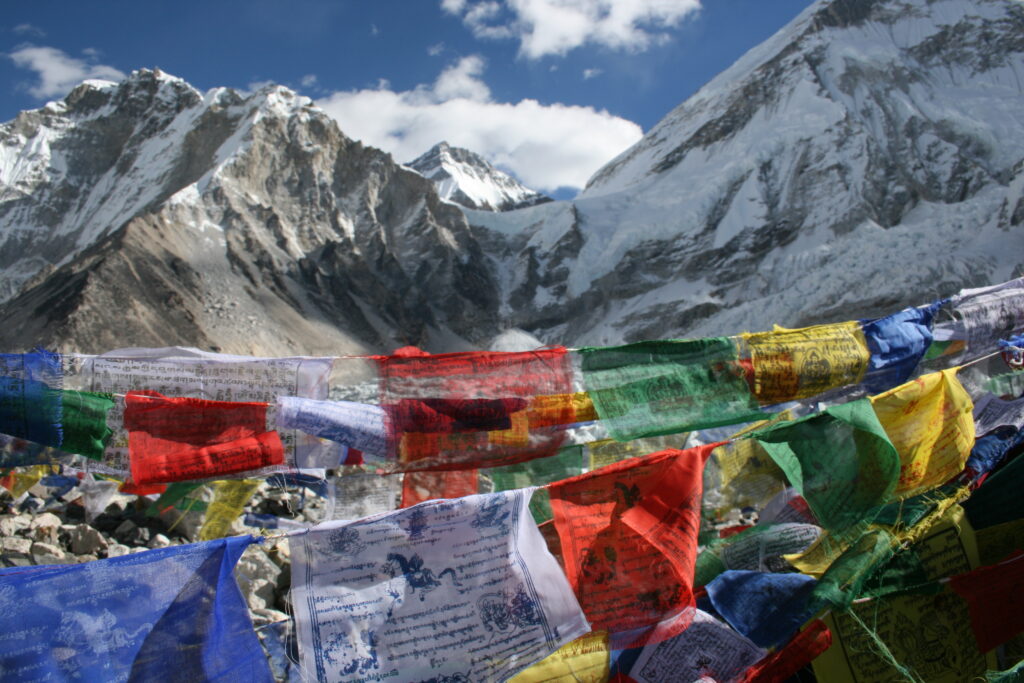
Other Medical Experience
Whilst knowing how to manage emergencies is vital, a lot of expedition medicine is preventative medicine and managing simple or non-urgent conditions, therefore a range of experience is useful. Pre-hospital care and experience working outside is really important as this is what expedition medicine usually involves.
- Gain experience by working in event medicine e.g. sports events, races, festivals etc. – volunteer and paid opportunities are available. This is a great way to learn and practise pre-hospital medicine and work in challenging environments. Examples of UK medical event companies: Trail Med and Event Safety Group.
- Search & Rescue / Mountain Rescue experience – even if you can’t join a local team, arranging some student society training events in exchange for a bit of fundraising often works well. Teams are usually very keen to help if you contribute to their funds!
- Student Medical Elective – consider going to low resource areas and think outside the box e.g. pre-hospital, research, mountain medicine, expedition internships. Start thinking and planning early. It doesn’t have to be an organised elective programme – just do an internet search for cool places, email random people and see where it takes you… it worked for me! You can also consider doing a split elective which I did. That way you can do two things e.g. two different health care experiences or a course plus some medical experience.
- Get broad foundation training medical experience, preferably including Emergency Medicine and General Practice if you can get it. (The vast majority of expedition work is public health and primary care issues.)
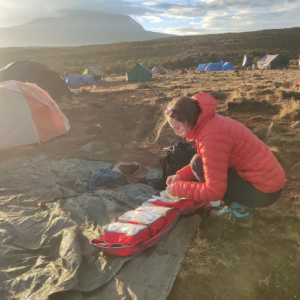
TOP TIP
Once you start work, apply for study leave (and study budget if it’s available) to go on wilderness or expedition courses or to conferences. Convince your employer that you will gain transferable skills for your current role (because you will!).
Useful Resources
- My online learning platform: Humans At High Altitude which offers online courses in mountain health and medicine, plus free resources.
- Blogs e.g. this one (!) and Mountain Medicine Blog.
- Podcasts e.g. ‘The Wilderness Medic Podcast’, ‘Mountain Air’, “WEMCast’ from World Extreme Medicine, ‘Medicine On The Frontier’.
- Look out for the huge range of articles, opportunities, jobs and events on these pages: The Adventure Medic – online magazine, World Extreme Medicine.
- A great article explaining How To Choose An Expedition Medicine Job.
- UIAA – International Climbing And Mountaineering Federation – lots of useful information about mountaineering medicine and safety.
- Oxford Handbook of Expedition and Wilderness Medicine: 3rd edition 2023.
- Wilderness Medicine Society Guidelines. These papers provide clinical guidelines for lots of important mountain medicine conditions based on the most recent evidence.
- Just a really great read: Emmanuel Cauchy’s book ‘Hanging by a Thread’ – short stories of his work with the Chamonix mountain rescue team.
I hope you found this article useful. Please feel free to leave a comment and share the post.
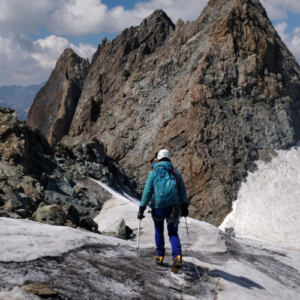
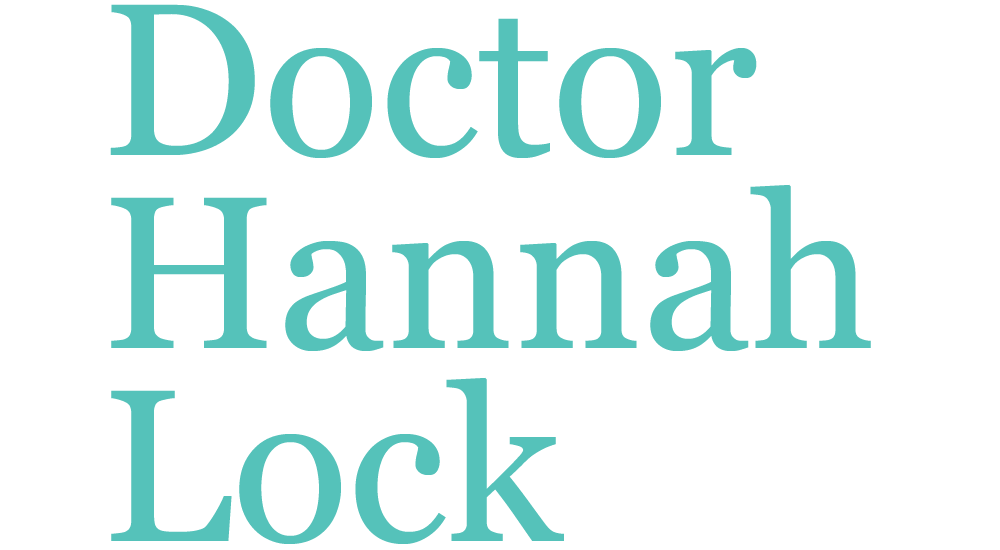
Great tips! I will definitely put some things into motion.